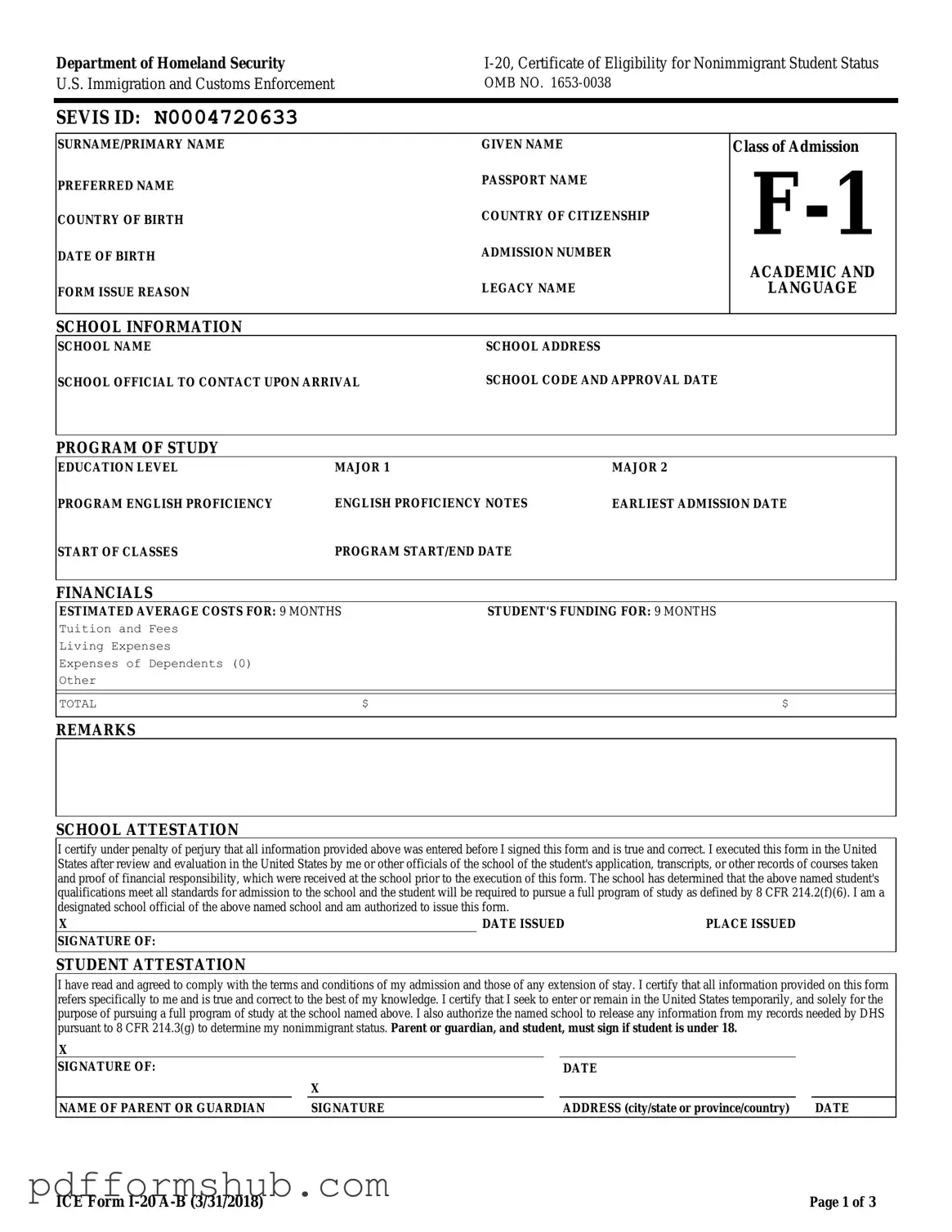Fill in Your I 20 Form
The I-20 form, officially known as the Certificate of Eligibility for Nonimmigrant Student Status, is a crucial document for international students seeking to study in the United States. It verifies that you have been accepted by a U.S. school and are eligible to apply for a student visa. Understanding the importance of this form is essential for a smooth educational journey in the U.S.
To ensure your application is complete, fill out the form by clicking the button below.
Customize Form

Fill in Your I 20 Form
Customize Form

Customize Form
or
Free PDF Form
Short deadline? Complete this form now
Complete I 20 online without printing hassles.